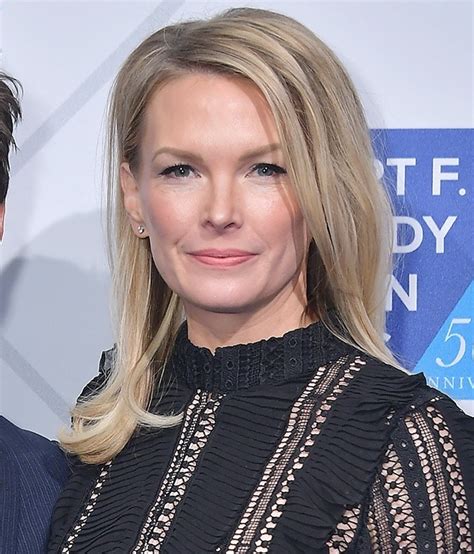
Sophie Rain has publicly criticized Bonnie Blue, accusing her of turning OnlyFans into a “clown show” with her recent content and behavior on the platform. The dispute, aired on social media, highlights growing tensions within the creator community regarding the platform’s evolving landscape and the types of content that garner attention.
The online feud erupted when Sophie Rain, a prominent figure on OnlyFans, voiced her disapproval of Bonnie Blue’s recent shift in content strategy. According to Rain, Blue’s antics and content style are not only detrimental to the platform’s image but also undermine the efforts of creators who focus on producing high-quality, tasteful material.
“I’m not gonna lie, I think she’s turning OnlyFans into a clown show,” Rain stated in a recent social media post, reflecting the core of her criticism. This statement quickly gained traction, sparking debate among fans and fellow creators about the direction OnlyFans is heading and the impact of different content approaches.
Bonnie Blue, known for her provocative and often controversial content, has not yet directly responded to Rain’s specific accusations. However, sources close to Blue indicate that she views her content as pushing boundaries and challenging conventional norms, which she believes is in line with the platform’s original ethos of creative freedom and expression.
The controversy underscores a larger discussion within the OnlyFans community about maintaining a balance between artistic expression and potentially exploitative or degrading content. As the platform continues to grow and attract a more diverse range of creators, the debate over appropriate content and its impact on the platform’s overall reputation is likely to intensify.
The public spat has drawn significant attention to the evolving dynamics of OnlyFans, prompting a closer examination of its policies, community standards, and the responsibilities of content creators. This incident serves as a microcosm of the broader challenges facing online platforms as they navigate issues of content moderation, user expectations, and the ever-changing landscape of digital media.
Background of Sophie Rain and Bonnie Blue
Sophie Rain has established herself as a successful creator on OnlyFans, known for her aesthetically pleasing content and strategic engagement with her audience. She has cultivated a brand centered around sophistication and quality, which contrasts sharply with the type of content Bonnie Blue often produces.
Bonnie Blue, on the other hand, has gained notoriety for her boundary-pushing content that frequently incorporates shock value and unconventional themes. Her approach has garnered both criticism and a dedicated following, positioning her as a controversial yet influential figure within the OnlyFans community.
The Core of the Dispute
The central issue of the dispute revolves around differing views on what constitutes acceptable and beneficial content for OnlyFans. Sophie Rain’s critique implies that Bonnie Blue’s content is degrading the platform by attracting the wrong kind of attention and potentially alienating subscribers who seek a more refined experience.
Conversely, Bonnie Blue’s defenders argue that her content is a form of artistic expression that challenges societal norms and expands the boundaries of what is considered acceptable. They assert that censorship and limitations on content types would undermine the platform’s original promise of creative freedom and diverse expression.
Industry Implications
This public disagreement highlights the internal conflicts that often arise within online platforms that cater to diverse content creators. As OnlyFans continues to evolve, it faces the challenge of balancing the needs and expectations of different content creators while maintaining a positive image and attracting a broad user base.
The controversy also raises questions about the role of platform administrators in regulating content and enforcing community standards. While OnlyFans has policies in place to address illegal or harmful content, the line between acceptable and unacceptable content can be subjective and open to interpretation.
Social Media’s Role
Social media platforms like Twitter and Instagram have played a significant role in amplifying the dispute between Sophie Rain and Bonnie Blue. These platforms serve as a direct channel for creators to voice their opinions, engage with fans, and respond to criticism.
The rapid dissemination of information on social media can quickly escalate conflicts and create a sense of public accountability. In this case, the public nature of the dispute has added pressure on both creators to address the issue and defend their respective positions.
OnlyFans’ Response
As of now, OnlyFans has not released an official statement regarding the dispute between Sophie Rain and Bonnie Blue. However, the platform is likely monitoring the situation closely to assess its potential impact on the community and its overall reputation.
The platform’s response, or lack thereof, could have significant implications for how it handles similar conflicts in the future. A proactive approach to content moderation and community management may be necessary to prevent further disputes and maintain a positive environment for creators and subscribers alike.
Creator Responsibility
The incident also underscores the importance of creator responsibility in shaping the online landscape. Content creators have a significant influence on their audience and the types of interactions that occur on online platforms.
By promoting respectful and constructive dialogue, creators can help foster a positive community and mitigate the potential for harmful or divisive content. Conversely, inflammatory rhetoric and personal attacks can contribute to a toxic environment and undermine the platform’s overall integrity.
Ethical Considerations
The debate between Sophie Rain and Bonnie Blue touches on broader ethical considerations surrounding online content creation. Questions of consent, exploitation, and the potential harm to individuals involved in the production of content are central to this discussion.
As online platforms become increasingly integrated into our daily lives, it is crucial to establish clear ethical guidelines and promote responsible content creation practices. This requires collaboration between platform administrators, content creators, and users to ensure that online interactions are conducted in a safe and respectful manner.
The Future of OnlyFans
The controversy surrounding Sophie Rain and Bonnie Blue highlights the complex challenges facing OnlyFans as it continues to grow and evolve. The platform must navigate the competing demands of content creators, subscribers, and regulators while maintaining its commitment to creative freedom and expression.
The future of OnlyFans will depend on its ability to address these challenges effectively and create a sustainable ecosystem that benefits all stakeholders. This requires a proactive approach to content moderation, community management, and the promotion of ethical content creation practices.
Potential Outcomes
The dispute between Sophie Rain and Bonnie Blue could have several potential outcomes. It could lead to a broader discussion about content standards on OnlyFans, prompting the platform to revisit its policies and guidelines. It could also result in changes to the way creators interact with each other and with their audience.
In the long term, the controversy could shape the future of OnlyFans and its role in the online landscape. By learning from this experience and adapting to the evolving needs of its users, the platform can solidify its position as a leading destination for content creators and subscribers alike.
The incident serves as a reminder that online platforms are not immune to the challenges and controversies that exist in the offline world. By addressing these challenges head-on and promoting responsible content creation practices, OnlyFans can create a more positive and sustainable environment for its users.
The online feud between Sophie Rain and Bonnie Blue serves as a microcosm of the broader tensions and debates that are shaping the digital landscape. As online platforms continue to evolve, it is crucial to foster open dialogue, promote ethical content creation practices, and address the challenges that arise in a proactive and responsible manner.
Detailed Analysis and Contextualization
The clash between Sophie Rain and Bonnie Blue transcends a mere personal disagreement; it embodies a profound tension within the burgeoning creator economy. OnlyFans, in particular, occupies a unique position, promising creators direct monetization opportunities while simultaneously grappling with questions of content appropriateness, ethical standards, and its evolving public perception.
Sophie Rain’s criticism strikes at the heart of the platform’s image, which, despite its explicit content association, has sought to cultivate a degree of mainstream legitimacy. Her accusation that Bonnie Blue is turning OnlyFans into a “clown show” suggests a fear that certain types of content are eroding the platform’s perceived value and alienating a segment of its user base. This perception is not isolated; similar concerns have been voiced by other creators who prioritize quality, aesthetic appeal, and a more sophisticated approach to content creation.
Bonnie Blue’s content strategy, on the other hand, represents a different perspective. She seemingly embraces a more provocative, boundary-pushing approach, potentially resonating with a different segment of the OnlyFans audience. This divergence in strategy is understandable, given the platform’s vast and diverse user base, but it also underscores the challenge of maintaining a cohesive brand identity and community standards.
The broader context of this dispute involves the evolving nature of online content creation and monetization. As platforms like OnlyFans gain prominence, they attract a wider range of creators, each with their own unique style, values, and goals. This diversity can be a strength, fostering innovation and catering to a wide range of user preferences. However, it also presents challenges in terms of content moderation, community management, and the maintenance of a positive user experience.
OnlyFans has implemented various policies and guidelines to address illegal or harmful content, but the line between acceptable and unacceptable can be subjective and open to interpretation. This ambiguity can lead to disagreements among creators, as evidenced by the Sophie Rain-Bonnie Blue dispute, and can create confusion among users about what to expect on the platform.
The role of social media in amplifying this dispute cannot be overstated. Platforms like Twitter and Instagram have provided a direct channel for creators to voice their opinions, engage with fans, and respond to criticism. This can be a powerful tool for building community and fostering dialogue, but it can also escalate conflicts and create a sense of public pressure.
In this case, the public nature of the dispute has likely influenced the actions of both Sophie Rain and Bonnie Blue. They are both aware that their words and actions are being scrutinized by a large audience, and this awareness can shape their responses and potentially exacerbate the conflict.
Looking ahead, it is crucial for OnlyFans to address the underlying issues that have contributed to this dispute. This may involve revisiting its content policies, improving its community management practices, and fostering a more open dialogue among creators and users.
By taking these steps, OnlyFans can create a more sustainable and positive environment for all stakeholders, ensuring that the platform continues to thrive as a leading destination for online content creation and monetization. The challenge lies in balancing creative freedom with the need to maintain a safe, respectful, and inclusive community. The resolution of this tension will ultimately determine the future of OnlyFans and its role in the evolving digital landscape. The platform’s response and adaptation will serve as a case study for other platforms navigating similar challenges.
Furthermore, the economic aspect of content creation on OnlyFans plays a significant role in the dynamics between creators. Success on the platform translates directly into financial gain, leading to a competitive environment where creators strive to maximize their earnings. This financial pressure can influence the types of content produced, the strategies employed to attract subscribers, and the overall tone of the creator community.
Sophie Rain’s criticism could be interpreted, in part, as a concern that Bonnie Blue’s content is affecting the perceived value of all content on the platform, potentially impacting the earnings of other creators. This highlights the interconnectedness of the OnlyFans ecosystem and the importance of maintaining a positive overall reputation.
Conversely, Bonnie Blue’s defenders might argue that her content is attracting new subscribers to the platform, benefiting all creators indirectly. This perspective emphasizes the diversity of the OnlyFans audience and the need to cater to a wide range of tastes and preferences.
Ultimately, the dispute between Sophie Rain and Bonnie Blue underscores the complex interplay of economic, ethical, and aesthetic considerations that shape the online content creation landscape. As platforms like OnlyFans continue to evolve, it is crucial to foster a more nuanced understanding of these dynamics and to develop strategies that promote both creative freedom and responsible content creation. The discussion needs to extend beyond simple criticism and delve into constructive solutions that benefit the entire community. This may include initiatives to promote ethical guidelines, provide resources for content creators, and foster a more collaborative environment where creators can learn from each other and support each other’s success.
Frequently Asked Questions (FAQ)
1. What is the main issue of contention between Sophie Rain and Bonnie Blue?
The primary conflict centers on Sophie Rain’s accusation that Bonnie Blue’s content is turning OnlyFans into a “clown show,” implying that Blue’s content is detrimental to the platform’s image and undermines creators producing higher-quality material. This disagreement stems from differing views on what constitutes appropriate and beneficial content for the platform.
2. What are the key differences in content style between Sophie Rain and Bonnie Blue?
Sophie Rain is known for her aesthetically pleasing and sophisticated content, focusing on quality and strategic engagement with her audience. Bonnie Blue, on the other hand, is known for her provocative and often controversial content that pushes boundaries and incorporates shock value.
3. How has social media impacted the dispute between the two creators?
Social media platforms like Twitter and Instagram have amplified the dispute, allowing both creators to voice their opinions directly to a large audience. This has increased public awareness of the conflict and potentially added pressure on both creators to respond and defend their positions.
4. Has OnlyFans responded to the controversy between Sophie Rain and Bonnie Blue?
As of the provided information, OnlyFans has not released an official statement regarding the dispute. However, it is likely monitoring the situation to assess its potential impact on the platform’s community and reputation.
5. What are the potential long-term implications of this dispute for OnlyFans?
The dispute could lead to a broader discussion about content standards on OnlyFans, potentially prompting the platform to revisit its policies and guidelines. It could also influence how creators interact with each other and with their audience. Ultimately, the controversy could shape the future of OnlyFans and its role in the online content creation landscape.
6. What is the significance of the “clown show” remark made by Sophie Rain?
The “clown show” remark is significant because it implies a degradation of the platform’s overall quality and reputation. It suggests that Bonnie Blue’s content is attracting the wrong kind of attention and potentially alienating subscribers who seek a more refined experience.
7. How might Bonnie Blue and her supporters defend her content?
Bonnie Blue and her supporters might argue that her content is a form of artistic expression that challenges societal norms and expands the boundaries of what is considered acceptable. They might also assert that censorship or limitations on content types would undermine the platform’s original promise of creative freedom.
8. What are the ethical considerations involved in this dispute?
The ethical considerations involve questions of consent, exploitation, and the potential harm to individuals involved in the production of online content. The debate also touches on broader issues of responsible content creation and the impact of online platforms on society.
9. How does the economic aspect of OnlyFans contribute to the dynamics between creators?
The economic aspect contributes to a competitive environment where creators strive to maximize their earnings. This financial pressure can influence the types of content produced, the strategies employed to attract subscribers, and the overall tone of the creator community.
10. What steps could OnlyFans take to address the underlying issues that have contributed to this dispute?
OnlyFans could revisit its content policies, improve its community management practices, and foster a more open dialogue among creators and users. It could also implement initiatives to promote ethical guidelines, provide resources for content creators, and foster a more collaborative environment.
11. What role does content moderation play in platforms like OnlyFans, and how can it be improved?
Content moderation is crucial for maintaining a safe and respectful environment on platforms like OnlyFans. It can be improved by implementing clearer and more specific content guidelines, investing in more effective content detection tools, and providing more training and support to moderators.
12. How can creators on OnlyFans contribute to a more positive and sustainable environment?
Creators can contribute by promoting respectful and constructive dialogue, adhering to ethical guidelines, and supporting each other’s success. They can also engage with their audience in a responsible manner and avoid inflammatory rhetoric or personal attacks.
13. What are the potential benefits and drawbacks of allowing a wide range of content on OnlyFans?
The benefits include fostering innovation, catering to diverse user preferences, and providing opportunities for creators with different styles and values. The drawbacks include the potential for content moderation challenges, the risk of attracting harmful or exploitative content, and the difficulty of maintaining a cohesive brand identity.
14. How does the evolving nature of online content creation impact platforms like OnlyFans?
The evolving nature of online content creation presents both opportunities and challenges for platforms like OnlyFans. It requires the platform to adapt to changing user expectations, embrace new technologies, and address emerging ethical concerns.
15. What is the importance of open dialogue and collaboration among creators and users on OnlyFans?
Open dialogue and collaboration are essential for fostering a more positive and sustainable environment on OnlyFans. They allow creators and users to share their perspectives, address concerns, and work together to improve the platform.
16. In what ways does Bonnie Blue’s content potentially “push boundaries,” and what are the implications of this?
Bonnie Blue’s content may push boundaries by exploring taboo subjects, challenging conventional norms, or employing unconventional artistic techniques. The implications of this can be both positive and negative, potentially sparking important conversations and expanding the range of creative expression while also risking offense or exploitation.
17. What are the potential consequences for OnlyFans if it fails to address controversies like the Rain-Blue dispute effectively?
Failure to address such controversies effectively could lead to a decline in user trust, damage to the platform’s reputation, and potential regulatory scrutiny. It could also create a more toxic environment for creators and users, ultimately undermining the platform’s long-term sustainability.
18. How might OnlyFans balance its commitment to creative freedom with the need for content moderation and community standards?
OnlyFans might balance these competing interests by establishing clear and transparent content guidelines, providing creators with resources and support to understand and comply with these guidelines, and implementing a fair and consistent content moderation process.
19. What are some specific examples of ethical guidelines that content creators on OnlyFans could follow?
Specific examples include obtaining informed consent from all individuals involved in the creation of content, avoiding the exploitation of vulnerable individuals, refraining from promoting harmful or illegal activities, and respecting the privacy and dignity of others.
20. How might the Rain-Blue dispute affect public perception of OnlyFans and similar platforms?
The dispute could reinforce negative stereotypes about OnlyFans and similar platforms, particularly those associating them with exploitation, degradation, or a lack of ethical standards. However, it could also spark a broader conversation about the complexities of online content creation and the need for responsible platform governance.









